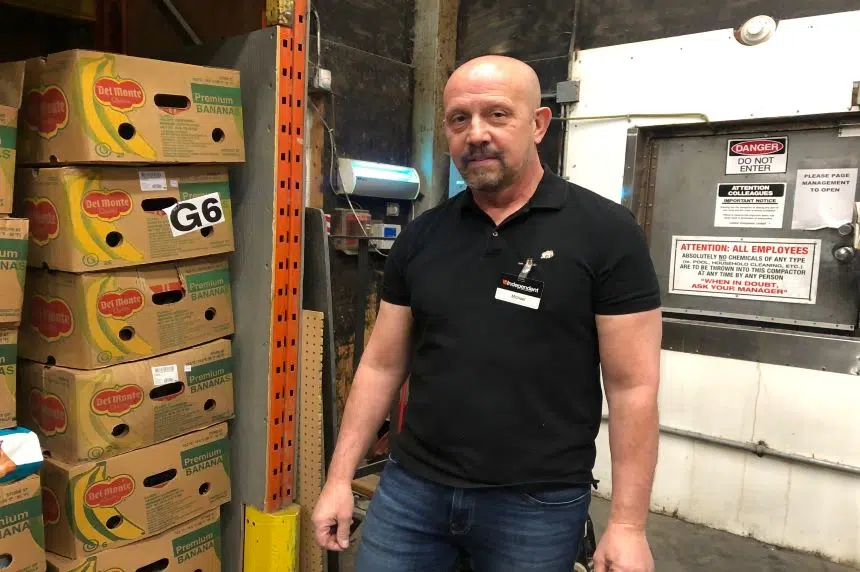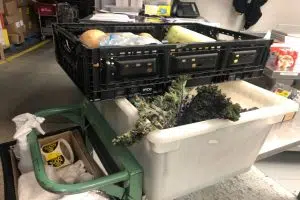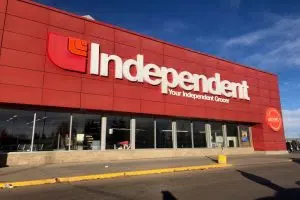A Saskatoon grocery store owner is taking his recycling efforts further than most people ever will.
Michael Goleski, who owns and operates Michael’s Independent Grocer on the city’s north side, not only donates food to the Saskatoon and Rosthern food banks, but he also recycles materials and donates anything that can’t be eaten to local farmers for feed and compost.
Standing inside his cooler, bread, dairy and meat products that are near their expiry date are loaded onto trolleys.
“It’s product that’s still fit for consumption but not fit for sale that we donate to the food banks. Products that are kind of on the edge, we reduce (their price). If it doesn’t sell through the reduction process, we can donate it to the food bank,” he explained.
And if it’s recently expired, he says it goes for animal feed.
“If it’s not fit for animal consumption, (farmers) can compost it,” Goleski said. “So nothing goes down the compactor at all.”
Goleski says the only time his compactor is even used anymore is if something falls off a shelf and breaks and it can’t be recycled in some way.
Last year, Goleski found a group called LOOP — an organization run by farmers — that puts other farmers in touch with grocers who then provide them with safe feed and compost.
Spokesperson Jaime White says the group got its start about four years ago in the Dawson Creek, B.C. area. It’s now working with around 240 stores across the country, including the one Goleski runs in Saskatoon.
“We work with farms to make sure that we have a food safe system that’s CFIA compliant and we’re able, as farmers, to turn food that’s not saleable back into food in your community,” White explained. “We’re really excited to find ways to support local agriculture through the existing things we’ve already got in our community.
“Big farms usually have a good system. They’ve got good access to feed. They’ve got a very scaleable economic. Small local farms, homesteads, family farms, people looking to transition to making a living off their farm, that’s our sweet spot.”
White says it’s free for farmers to sign up for the program. They’re then matched with a local grocer who can supply them with the feed they need.
The grocers, like Goleski, pay a monthly fee for insurance and liability purposes. Goleski says his staff are all on board, and each day each department goes through its inventory to see what can be donated to either food banks or to local farmers.
Goleski says it wasn’t a difficult to set up and he has saved a lot of money on garbage pickup fees.
“It’s easy. You just have to have the will to do it. So far this year, I’ve reduced my pickup fees by almost $10,000,” he said with a smile.
He says the next project is to get rid of plastic bags in his store.













